Divya Desam in Madurai
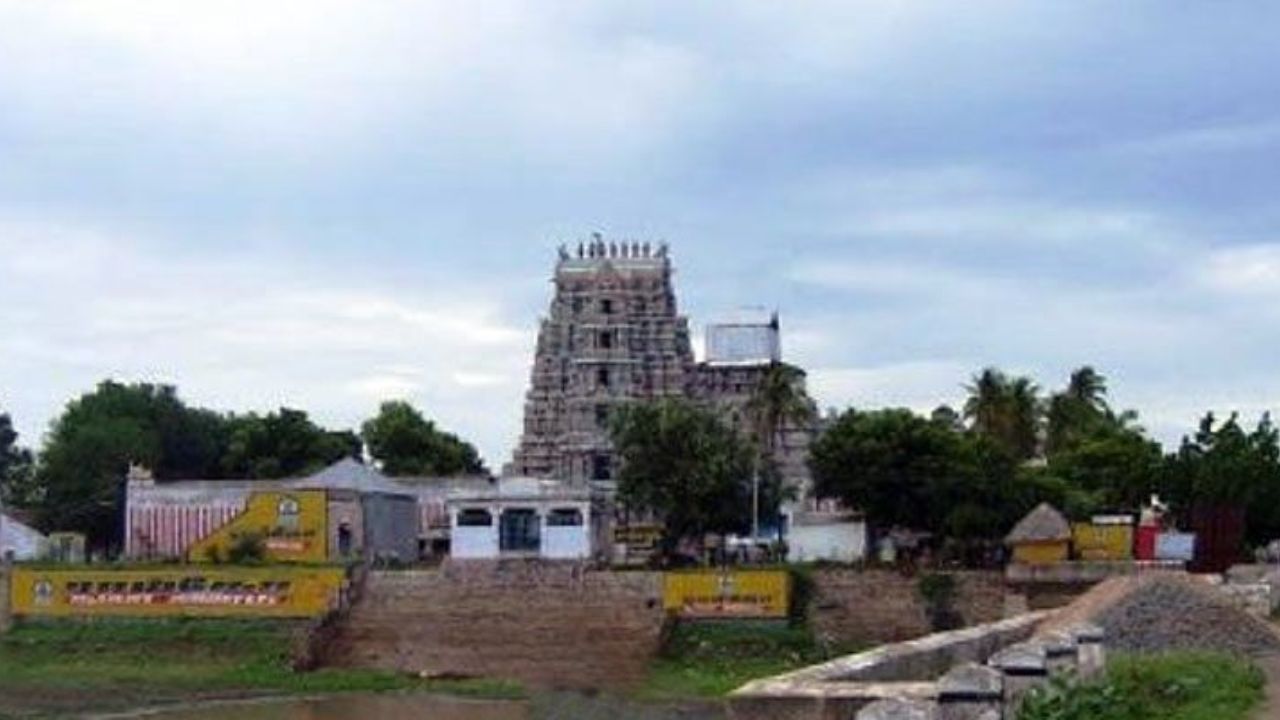
Introduction
Madurai, one of Tamil Nadu’s oldest and culturally richest cities, boasts some of the most revered temples known as Divya Desams in Madurai and nearby regions. These shrines were celebrated by 12 Azhwars singing sacred Tamil hymns known as Naalayira Divya Prabandham hymns for their spiritual significance; each boasting unique architectural features like Temple Tank and Vimana that make visiting one an essential experience for both devotees and heritage lovers.
Madurai offers many Divya Desam Temples that represent various divine aspects of Lord Vishnu, such as Sri Koodal Azhagar Perumal Temple, Sri Kallazhagar Perumal Temple (Alagar Kovil), and Sri Kaalamegha Perumal Temple (Thiru Moghur). Not only do these temples provide divine blessings; their architectural features also showcase Dravidian styles with intricate sculptures and historically significant inscriptions; while each Tank and Vimana represent different aspects of Vishnu.
Spiritual exploration extends beyond Madurai to neighboring regions such as Thirukkotiyoor, Thirumeyyam, Thiruppullani, Thiruthankaal and Thiruvilliputtur where more Divya Desams in Madurai can be discovered. Ancient texts have praised these temples for their Perumal and Thayar deities, sacred tanks and legendary vimanas praised in ancient texts.
Visitors seeking spiritual connection or simply historical intrigue will find that visiting Tamil Nadu’s spiritual heritage through visiting these holy sites provides a profound experience. Be it divinity’s blessings or admiring architectural marvels, Madurai and its neighboring districts provide pilgrims and travelers alike a journey of faith, devotion, and architectural marvel. Here, we explore all 108 Divya Desams nearby Madurai that boast historical significance or feature Temple Tanks or Vimanas to make for an incredible pilgrimage journey experience.
108 Divya Desam Temples
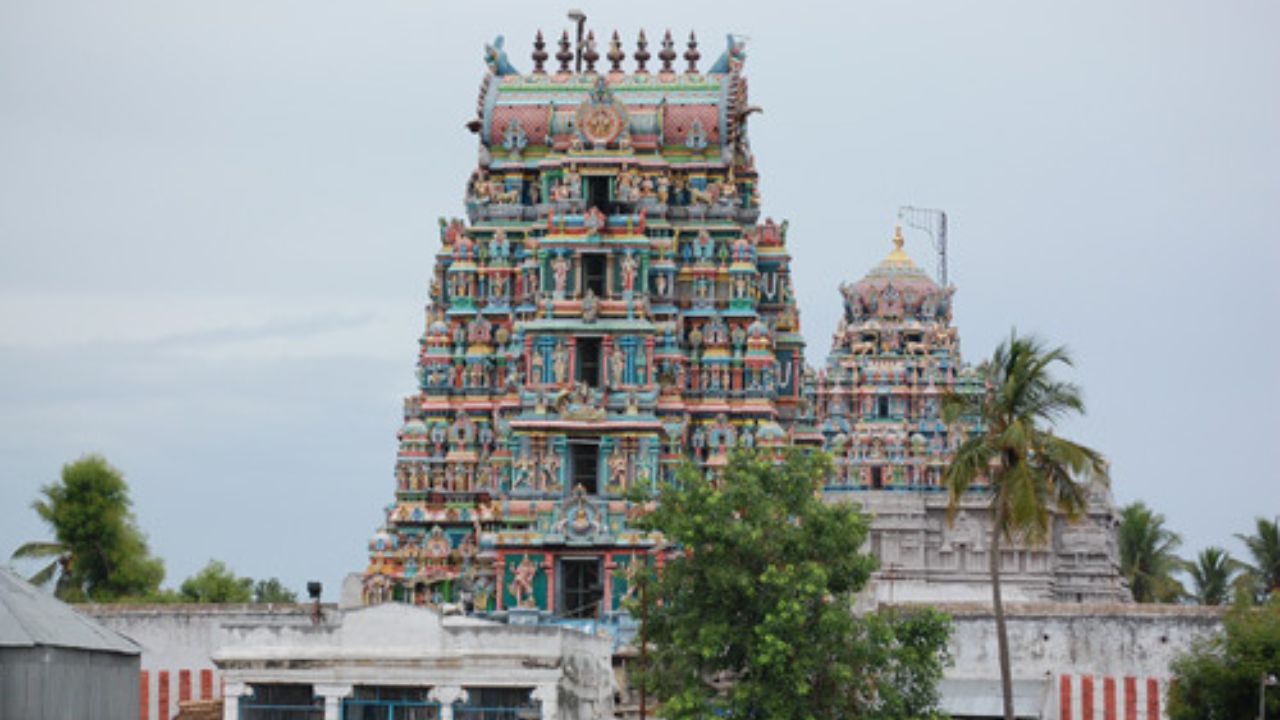
The 108 Divya Desam temples are sacred shrines dedicated to Lord Vishnu and revered in the Naalayira Divya Prabandham composed by 12 Azhwars in Tamil. Scattered throughout India and Nepal, these 108 temples hold immense importance within Vaishnavism as divine abodes where Lord Vishnu manifested various forms to bless his devotees – each temple boasts its own legend, Vimana (sanctum tower), and Pushkarani Tank where devotees perform spiritual purification rituals rituals to cleanse themselves spiritually of mind of negativity.
One hundred and eighty of these Divya Desams, or temples of Divine worship, can be found throughout Tamil Nadu; Madurai in particular has many. Thiru Moghur, Alagar Kovil, Thirukkotiyoor and Thiruppullani boasts many of these exquisite Dravidian structures with historical inscriptions and profound spiritual essence – their Vimana reflecting celestial beauty as well as divine symbols.
Pilgrims who travel the 108 Divya Desam temples believe their journey will help them attain Moksha (liberation). While most of these temples can be found in South India, some significant ones such as Badrinath in Uttarakhand and Muktinath in Nepal attract visitors in northern regions; Madurai’s list of Divya Desam draws them due to its rich spiritual and cultural history.
Each temple stands as a reminder of Lord Vishnu’s divine presence, offering devotees an avenue toward spiritual enlightenment and eternal happiness. With architectural marvels as well as spiritual fulfillment for pilgrims seeking blessings or architectural design excellence; these 108 Divya Desam temples form an essential cornerstone of Vaishnavite faith attracting millions of pilgrims each year.
Temple Tanks

Temple tanks, known as Pushkarani or Theertham, hold great spiritual and historical importance in the Divya Desams in Madurai and its surrounding regions. These sacred water bodies are believed to have divine origins, with legends associating them with Lord Vishnu’s blessings and the penance of sages. Many devotees perform purification rituals in these Temple Tanks before entering the sanctum, as they are considered to possess healing and spiritual cleansing properties.
Each 108 Divya Desams in Madurai and nearby districts features a unique Temple Tank, with fascinating mythological stories attached to it. For example, the Hema Pushkarani at Sri Koodal Azhagar Perumal Temple is believed to have been created by Lord Vishnu for celestial beings. The Noopura Ganga at Alagar Kovil (Thirumaalirunsolai) is said to have originated from the anklet of Lord Vishnu himself. Similarly, Chakra Theertham at Thiruppullani is associated with Lord Rama’s prayers before building the bridge to Lanka.
The list of Divya Desam near Madurai features several such sacred tanks, each enhancing the divine aura of these temples. These Temple Tanks continue to be a source of spiritual energy, drawing devotees seeking blessings, purification, and inner peace.
Vimana
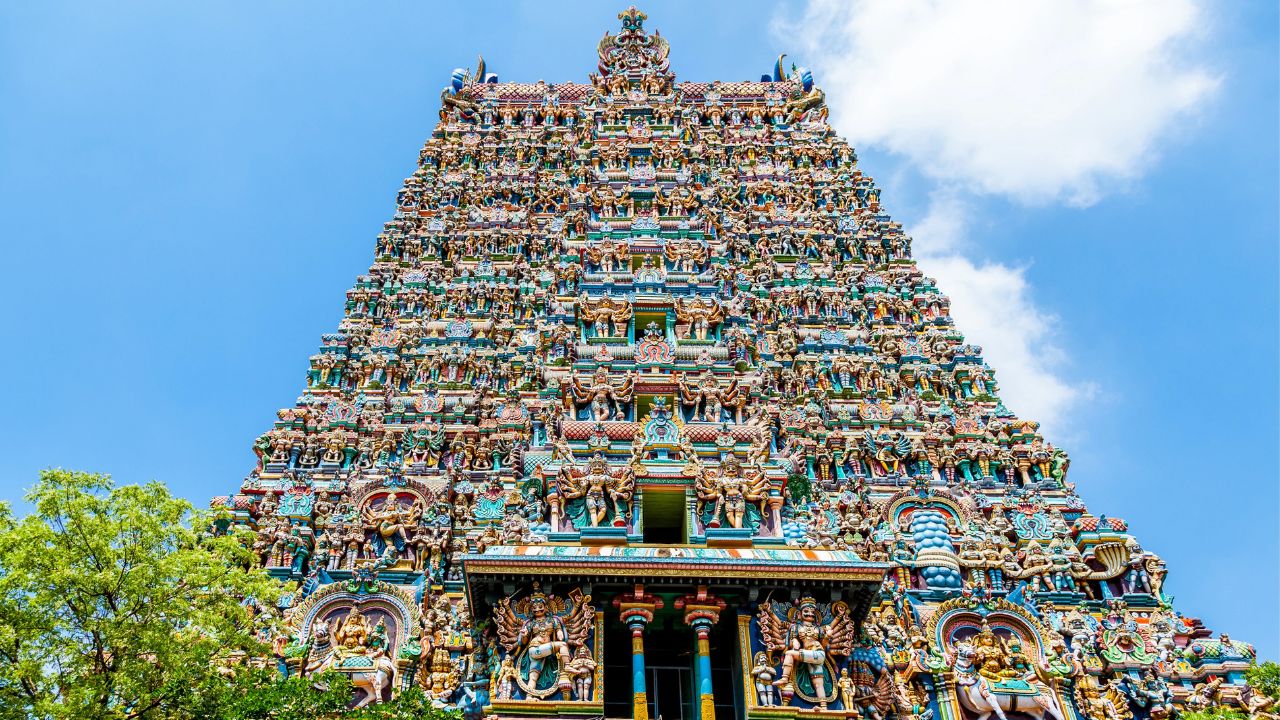
Divine Vimanas of Madurai Vimanas are one of the hallmark architectural features of Madurai’s Divya Desams and nearby regions, representing Lord Vishnu’s celestial abode and discharging divine energy into its surroundings. Each 108th Divya Desam in Madurai and surrounding regions has a Vimana with significant spiritual meaning and history attached.
Ashtanga Vimana at Sri Koodal Azhagar Perumal Temple symbolizes an eight-sided structure and represents cosmic equilibrium; Somasundara Vimana in Alagar Kovil (Thirumaalirunsolai) features intricately designed columns which represent Lord Vishnu’s divine grace; Soundarya Vimana at Thiru Moghur stands as an indication of ancient heritage while Rathna Vimana symbolizes Lord Jagannatha Perumal.
These Vimanas not only showcase the architectural grandeur of Tamil temple construction, but they also hold deep spiritual meaning for devotees who worship under them. Worshippers believe that worshiping under these divine structures confers them immense blessings. Madurai boasts several such sacred Vimanas which enhance its divine aura and emphasize its significance within Vaishnavism.
List of Divya Desam near Madurai
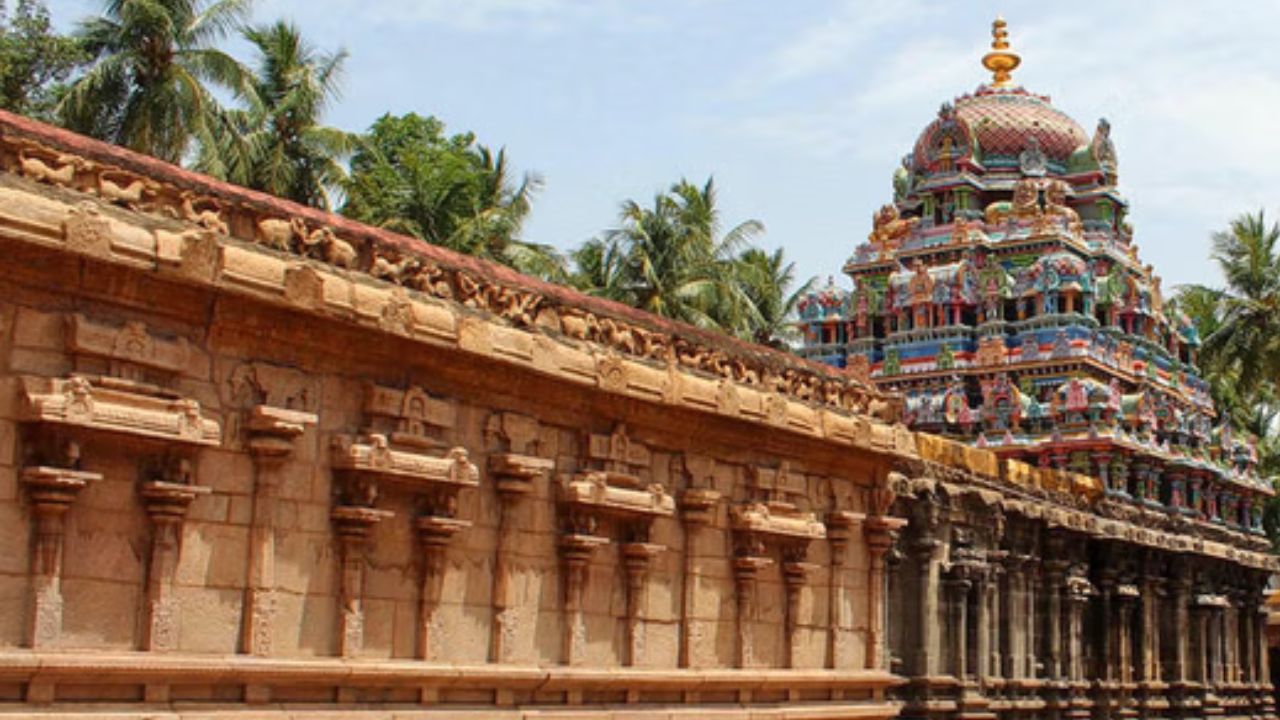
Madurai and its surrounding regions are home to some of the most revered Divya Desam temples, celebrated by their 12 Azhwars. Some notable Divya Desams include Sri Koodal Azhagar Perumal Temple (Alagar Kovil), Sri Kallazhagar Perumal Temple (Alagar Kovil), and Sri Kaalamegha Perumal Temple (Thiru Moghur). Other nearby Divya Desams include Thirukkotiyoor Thirumeyyam Thiruppullani Thiruthankaal Thiruvilliputtur; each known for their divine Vimana, Temple Tank, spiritual significance as well as spiritual significance – these Temples draw devotees seeking blessings while exploring Tamil Nadu’s Vaishnavite heritage!
- Thirukkoodal – Sri Koodal Azhagar Perumal Temple
- Thiru Moghur – Sri Kaalamegha Perumal Temple
- Thirumaalirunsolai (Alagar Kovil) – Sri Kallazhagar Perumal Temple
- Thirukkotiyoor – Sri Uraga Mellanayaan Perumal Temple
- Thirumeyyam – Sri Sathyagiri Natha Perumal Temple
- Thiruppullanni (Ramanathapuram) – Sri Kalyana Jagannatha Perumal Temple
- Thiruthankaal (Sivakasi) – Sri Nindra Narayana Perumal Temple
- Thiruvilliputtur (Sri Villiputhoor) – Sri Vadabhatra Saayi Perumal Temple
108 Divya Desam in Madurai
1. Thirukkoodal – Sri Koodal Azhagar Perumal Temple (Madurai)
- Perumal Name: Sri Koodal Azhagar
- Thayar Name: Sri Madhuravalli Thayar
- Old Name: Koodal Nagar
- Vimana Name: Ashtanga Vimana
- Temple Tank: Hema Pushkarani
- Azhwar’s Praise: Periyazhwar
- District: Madurai
- Nearest Airport: Madurai Airport (~12 km)
- Nearest Railway Station: Madurai Junction (~2 km)
- Nearest Bus Stand: Mattuthavani Bus Stand (~6 km)
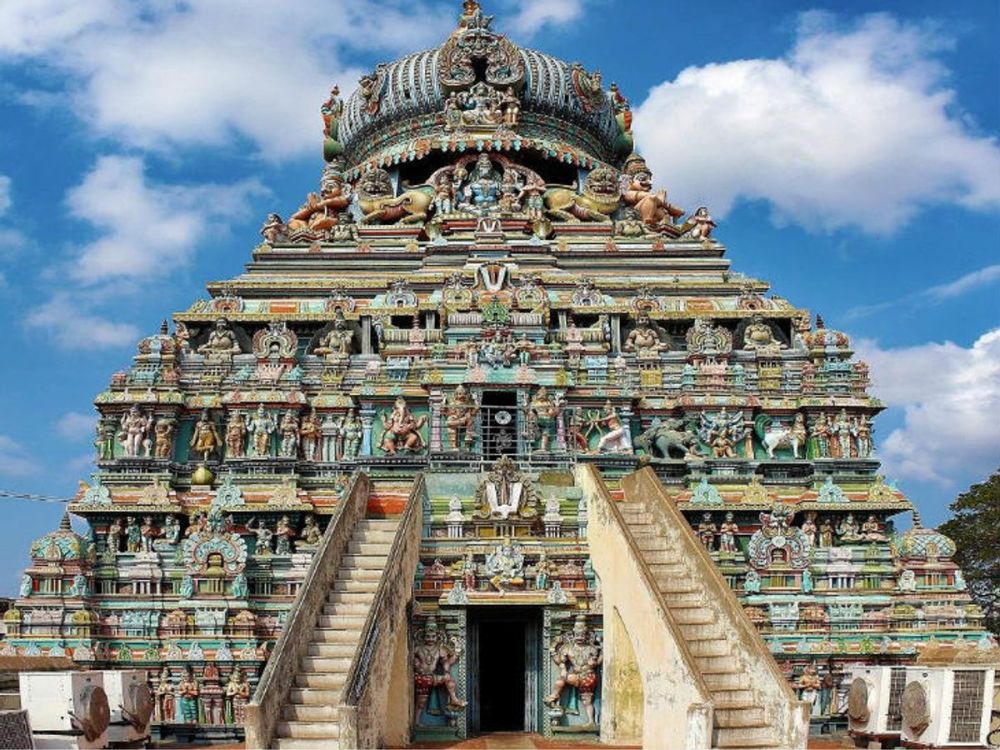
2. Thiru Moghur – Sri Kaalamegha Perumal Temple (Madurai)
- Perumal Name: Sri Kaalamegha Perumal
- Thayar Name: Sri Mohanavalli Thayar
- Old Name: Thiru Moghur
- Vimana Name: Soundarya Vimana
- Temple Tank: Ksheera Pushkarani
- Azhwar’s Praise: Nammalvar
- District: Madurai
- Nearest Airport: Madurai Airport (~20 km)
- Nearest Railway Station: Madurai Junction (~10 km)
- Nearest Bus Stand: Periyar Bus Stand (~10 km)
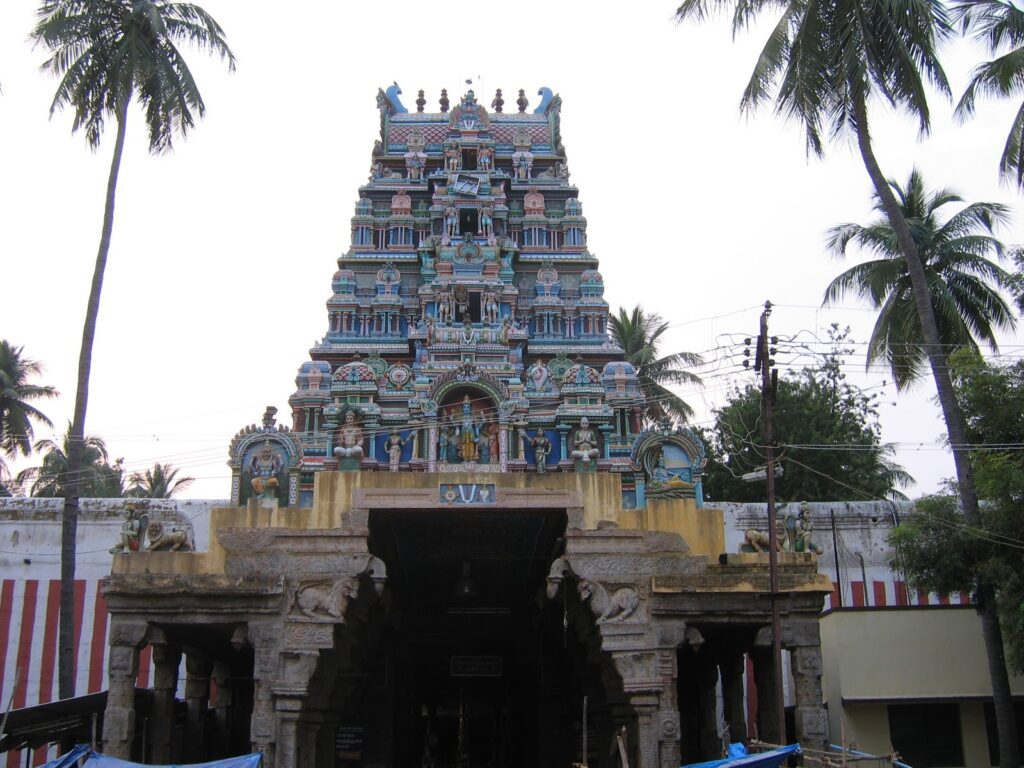
3. Thirumaalirunsolai (Alagar Kovil) – Sri Kallazhagar Perumal Temple (Madurai)
- Perumal Name: Sri Kallazhagar
- Thayar Name: Sri Sundaravalli Thayar
- Old Name: Thirumaalirunsolai
- Vimana Name: Somasundara Vimana
- Temple Tank: Noopura Ganga
- Azhwar’s Praise: Periyazhwar, Thirumangai Azhwar
- District: Madurai
- Nearest Airport: Madurai Airport (~25 km)
- Nearest Railway Station: Madurai Junction (~21 km)
- Nearest Bus Stand: Periyar Bus Stand (~21 km)
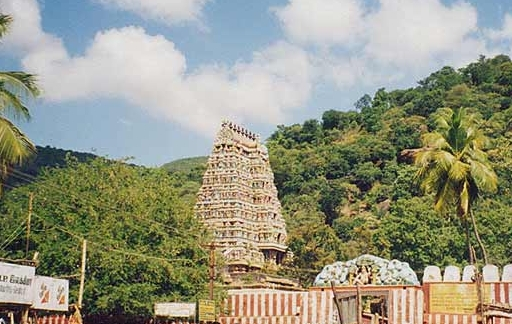
4. Thirukkotiyoor – Sri Uraga Mellanayaan Perumal Temple (Sivaganga)
- Perumal Name: Sri Sowmya Narayana Perumal
- Thayar Name: Sri Thirumaamagal Nachiyar
- Old Name: Thirukkotiyoor
- Vimana Name: Ashtanga Vimana
- Temple Tank: Ksheera Pushkarani
- Azhwar’s Praise: Thirumangai Azhwar
- District: Sivaganga
- Nearest Airport: Madurai Airport (~80 km)
- Nearest Railway Station: Sivaganga Railway Station (~12 km)
- Nearest Bus Stand: Sivaganga Bus Stand (~12 km)
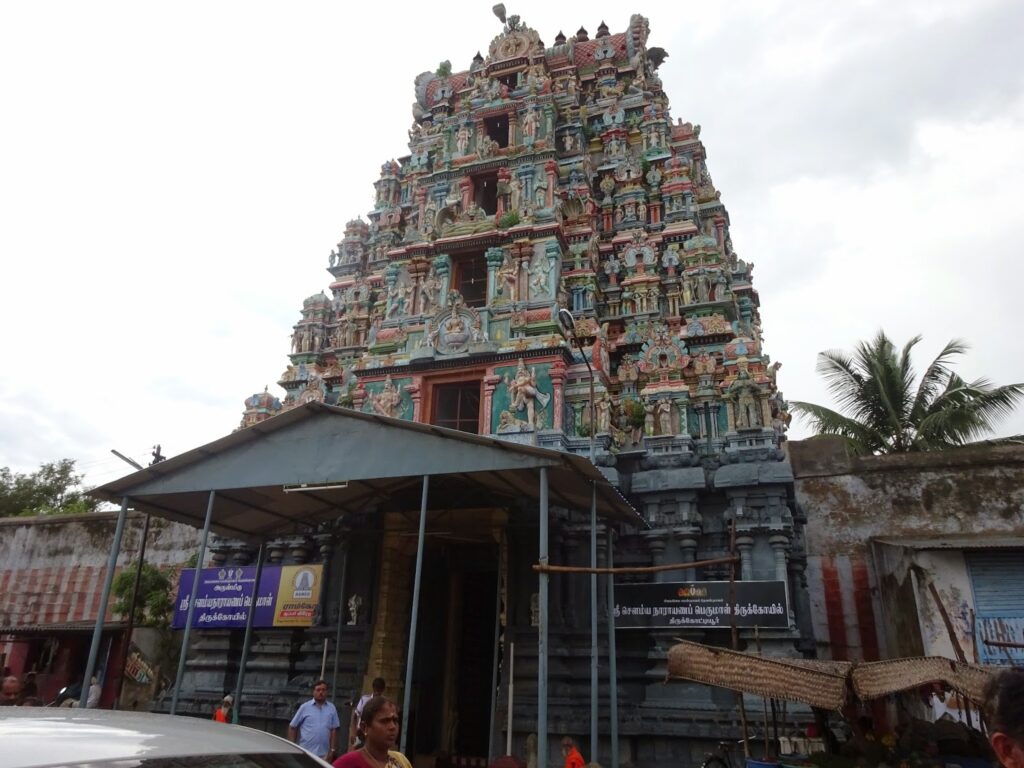
5. Thirumeyyam – Sri Sathyagiri Natha Perumal Temple (Pudukkottai)
- Perumal Name: Sri Sathyagiri Natha Perumal
- Thayar Name: Sri Ujeevana Thayar
- Old Name: Thirumeyyam
- Vimana Name: Hemakoti Vimana
- Temple Tank: Kadamba Theertham
- Azhwar’s Praise: Bhoothathazhwar
- District: Pudukkottai
- Nearest Airport: Tiruchirapalli Airport (~90 km)
- Nearest Railway Station: Pudukkottai Railway Station (~18 km)
- Nearest Bus Stand: Pudukkottai Bus Stand (~18 km)

6. Thiruppullanni – Sri Kalyana Jagannatha Perumal Temple (Ramanathapuram)
- Perumal Name: Sri Kalyana Jagannatha Perumal
- Thayar Name: Sri Padmasini Thayar
- Old Name: Thiruppullani
- Vimana Name: Rathna Vimana
- Temple Tank: Chakra Theertham
- Azhwar’s Praise: Nammalvar
- District: Ramanathapuram
- Nearest Airport: Madurai Airport (~125 km)
- Nearest Railway Station: Ramanathapuram Railway Station (~10 km)
- Nearest Bus Stand: Ramanathapuram Bus Stand (~10 km)
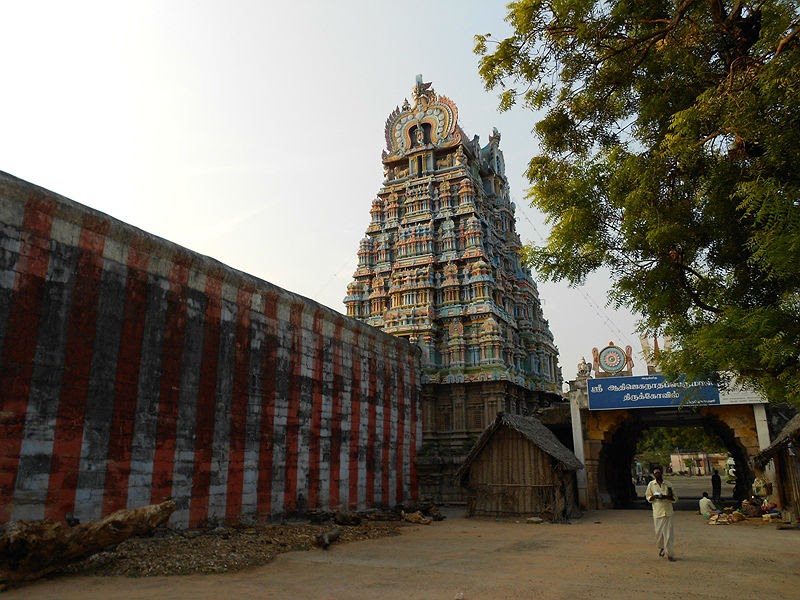
7. Thiruthankaal – Sri Nindra Narayana Perumal Temple (Sivakasi, Virudhunagar)
- Perumal Name: Sri Nindra Narayana Perumal
- Thayar Name: Sri Sengamala Thayar
- Old Name: Thiruthankaal
- Vimana Name: Deva Chandra Vimana
- Temple Tank: Papavinasa Theertham
- Azhwar’s Praise: Nammalvar
- District: Virudhunagar
- Nearest Airport: Madurai Airport (~70 km)
- Nearest Railway Station: Sivakasi Railway Station (~10 km)
- Nearest Bus Stand: Sivakasi Bus Stand (~10 km)
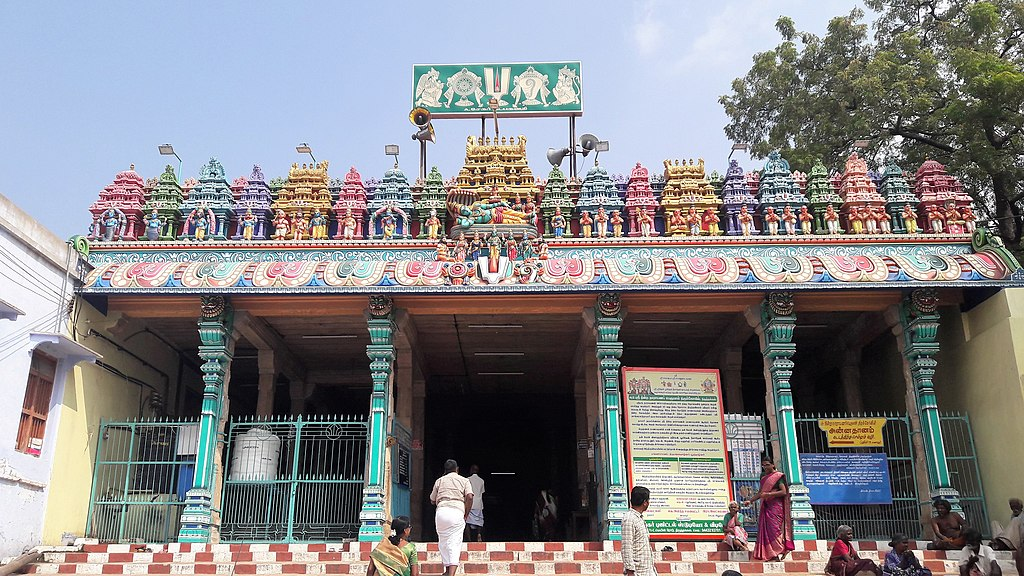
8. Thiruvilliputtur – Sri Vadabhatra Saayi Perumal Temple (Virudhunagar)
- Perumal Name: Sri Vadabhatra Saayi Perumal
- Thayar Name: Sri Andal Nachiyar
- Old Name: Thiruvilliputtur
- Vimana Name: Ashtanga Vimana
- Temple Tank: Sri Andal Pushkarani
- Azhwar’s Praise: Periyazhwar, Andal
- District: Virudhunagar
- Nearest Airport: Madurai Airport (~75 km)
- Nearest Railway Station: Srivilliputhur Railway Station (~2 km)
- Nearest Bus Stand: Srivilliputhur Bus Stand (~2 km)

Conclusion
The Divya Desams in Madurai and its surrounding regions hold a special place in the spiritual and cultural landscape of Tamil Nadu. These temples, part of the 108 Divya Desams in Madurai and nearby districts, have been praised by the 12 Azhwars for their divine significance and historical prominence. Each temple showcases breathtaking architecture, intricate sculptures, and sacred Temple Tank and Vimana, making them essential pilgrimage destinations for Vaishnavites and history enthusiasts alike.
From the majestic Sri Koodal Azhagar Perumal Temple in the heart of Madurai to the serene Sri Kallazhagar Perumal Temple (Alagar Kovil) nestled in the hills, each temple offers a unique spiritual experience. The list of Divya Desam near Madurai extends further to places like Thiru Moghur, Thirukkotiyoor, Thirumeyyam, Thiruppullani, Thiruthankaal, and Thiruvilliputtur, enriching the pilgrimage trail with divine stories and sacred traditions.
Visiting these temples not only deepens one’s faith but also provides an opportunity to explore the Temple Tank and Vimana that define each shrine’s distinct identity. Whether seeking blessings, discovering historical marvels, or experiencing the spiritual aura of these holy sites, a journey to the Divya Desams in Madurai promises a fulfilling and soul-enriching experience.
Plan your visit to these ancient temples and immerse yourself in the divine essence of 108 Divya Desams in Madurai and beyond. Let the chants of the Azhwars and the serenity of these sacred places guide you on a transformative pilgrimage filled with devotion, history, and architectural splendor.
